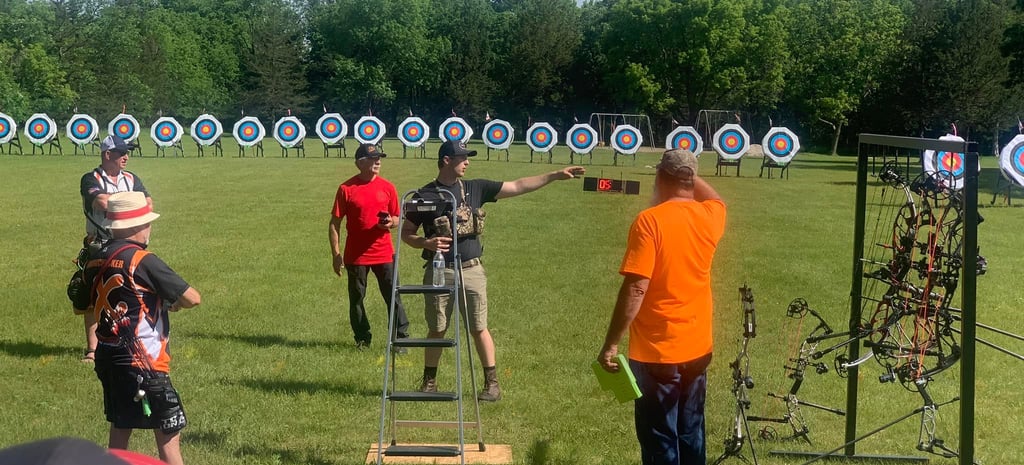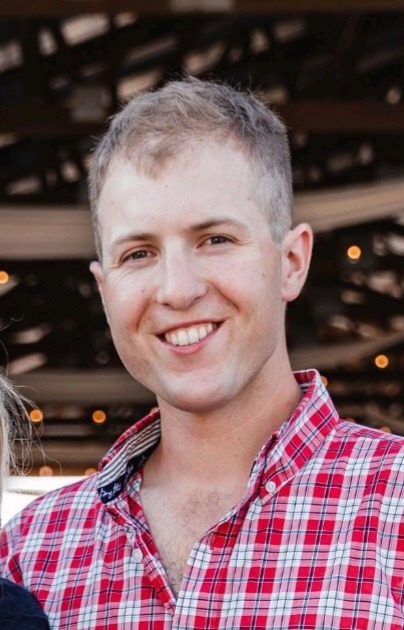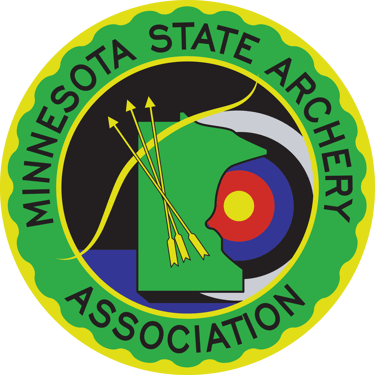To Effectively Teach is to have Thoroughly Learned
One of the great lures of archery is that it is a sport no one can ever learn entirely. We are constantly being educated as we actively participate in it.
ADVOCACY & EDUCATIONMEMBER SUBMITTED


One of the great lures of archery is that it is a sport no one can ever learn entirely. We are constantly being educated as we actively participate in it. It is a lesson plan that is unique to the personal experiences and interactions each of us are exposed to. It is a lesson plan where good and bad experiences or interactions are of equal importance.
I was a teaching assistant in college for a beef cattle production and a small/large ruminant production class. I would be asked to give lectures and demonstrations on topics such as animal handling, meat and carcass evaluation, and genetic selection. My role was to have a thorough knowledge on these topics so I could teach them to classmates in a way that allowed them to understand their relationship to one another and the greater picture of the theory. By trying to learn these topics extensively I became a better student with an engrained understanding. In the fraternity I was in charge of the group’s initiative on scholarly achievement. This led to personal tutoring and realizing that all students could be successful, for some it was natural and others simply needed to work harder to reach the same level of competency. Archers have varying ineptness but by thoroughly understanding a concept and applying themselves they can either help teach another or more importantly help themselves become greater. Those who continue to learn and seek productive information, then strive to effectively implement learned lessons will see greater status in archery.
There is no archery college or professors officially, but log onto YouTube to search the subject of archery and instantly you will be exposed to thousands of people and their opinions. At no other time has so much information been easily accessible in this sport. This is both overwhelmingly good and extremely bad. A person must create their own filter. Look towards those voices coming from people who have achieved in the aspect of the sport you wish to improve upon. You would not likely take financial advice from someone sporting a 620 credit score or hire a personal trainer who is overweight? Same applies to archery. If wanting to be a better bowhunter or target archer look for those who have the trophy rooms to back it up. I listen to over 8 hours of archery specific podcasts weekly and would listen to more if they could produce them. I look for the people who have years of issue related experience when seeking information. I will then listen to different episodes featuring the same archer or same subject because I find 90% overlap in what they say. Within that, there is some difference in the explanation and justification of a stance. This clears out some assumptions that I had on the prior podcast or video. Hearing someone explain things multiple times helps develop a vocabulary which you can use to describe your own happenings and relate. The 10% that is novel maybe substantiation on a prior debate or a further development on something they were experimenting with after the prior episode. I have listened to approximately two dozen podcasts with professional archer Tim Gillingham as a host or guest over the past three years. Each time, I hear new information as well as the rehashing of old information. What I like is the consistency in his opinion which he backs up with trial and research, but also how when he explains things to guests or hosts I learn further upon his stance. There are other archers out there I like to listen to due to their educational benefit but I again seek the accomplished individuals who have withstood the test of time and are consistently successful in the field pertinent to my pursuit. I will still listen to new archers so I keep exposing myself to ideas and philosophies but as with the veterans I try to dive deeper than surface value of their words. Look for the common ground details and diligently sift through the outlying information.
Referring back to my distancing college days, I remember one day in freshman English class when the professor walked in and wrote the word “autodidact” on the board. He asked us if we knew what that word was. None of us knew, and he told us it was a person who is self-taught, no formal education but is highly competent in that subject. As I trek through my personal archery progression, this word continues to come back to me. An improving archer is the idea of an autodidact. Archers should be constantly having these internal conversations, analyzing their process and performance. Many times have I traveled back from a shoot or tournament in complete silence thinking about the things that held me back whether it was myself or something I did not prepare properly for. This time to reflect helps me focus on the next tournament and what I want to change to better achieve the next time I pick up my bow. When traveling with others I ask what shots they would want to redo if they could, and what changes will they make based on the most recent experience. What part of their preparation helped them? Externalizing these conversations helps all those in the vehicle examine what occurred from different perspectives and encourages the autodidact personality. Experience is a great teacher if we learn from it. To learn we must think and analyze and incorporate it into our actions.
Helping a new a new or developing archer is a great way to remind ourselves of the key concepts that can elude us overtime. My wife is shooting her first league and on our way to the range we move our focus from daily life to what we need to do that night to shoot well. By talking with her about the fundamentals and process it helps me get into the right mentality as well. Something that as the season goes on I can easily overlook, but by helping her I am encouraged to practice what I preach.
Learning in this sport is a continuous involvement. There are many voices to listen to, but look deeper into what you are incorporating. Do not changefor the sake of change thinking that is the answer. Justify it to yourself based on your personal interactions or off accredited archers’ years of trial. The best students of this great sport are the most effective teachers since they relay information not based off what they see and hear and simply repeat, but with how they substantiate the “why”. Ask, observe, connect, compile and never stop teaching yourself!
Keep punching clocks and busting nocks!
-Adam Kramer, T.H.E. Great River Archery Club
About the Author
Adam Kramer
I live in Rice, MN with my wife Alexandra (married 2020) on a small farm. I grew up in Wisconsin where I found competitive archery at a young age. 4H and NFAA were my main sanctions of participation. After graduating from UW-River Falls with a meat animal science degree, I moved to the greater St. Cloud area. Since then I have begun to experience the great MN archery community and hope to contribute to its enrichment through writing and volunteering at my local club ( T.H.E Great River Archery Club). Currently, I work at Archery Country in Waite Park, and breed cows for Select Sires in central MN. My hobbies include enjoying archery with friends and family, hiking, snowshoeing, camping, raising livestock, reading, and watching MASH. Archery is life and life is good!


